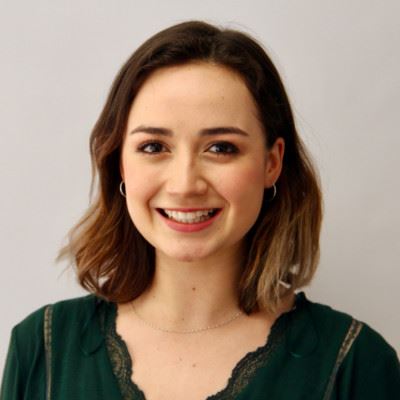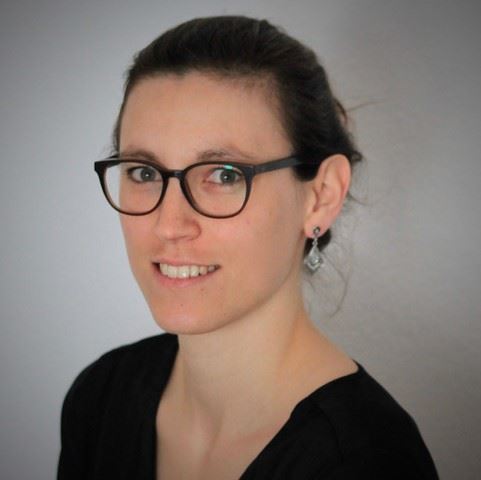The HUPO ECR Initiative is excited to welcome two new members to its organization: Jessica Del Castillo Alferez, a Ph.D. candidate at the University of Utrecht in the Netherlands, and Isabell Bludau, a postdoctoral fellow at the Max Planck Institute in Germany. Learn more about these two up-and-coming researchers below.
 Jessica Del Castillo Alferez is a Ph.D. candidate at Sanquin Research Amsterdam and the University of Utrecht, Netherlands. Her research focuses on the development of plasma peptidomics and proteomics approaches to unravel fundamental aspects of haemostasis. She obtained her bachelor’s degree in Biochemistry at UDLAP, Mexico with a one-year exchange at McGill University, Canada. After this, she moved to the Netherlands where she completed a Master’s program in Molecular Medicine at the University of Groningen. During her Master’s internship, she entered the field of clinical proteomics while investigating proteomic adaptations of asymptomatic MCADD. Jessica is part of the Symphony Consortium, which aims to improve treatment for bleeding disorders by addressing interindividual variation in bleeding tendency. As part of Symphony, her Ph.D. project seeks to link the proteome to the bleeding phenotype with the use of plasma and blood cell profiles to study modifiers of haemostasis.
Jessica Del Castillo Alferez is a Ph.D. candidate at Sanquin Research Amsterdam and the University of Utrecht, Netherlands. Her research focuses on the development of plasma peptidomics and proteomics approaches to unravel fundamental aspects of haemostasis. She obtained her bachelor’s degree in Biochemistry at UDLAP, Mexico with a one-year exchange at McGill University, Canada. After this, she moved to the Netherlands where she completed a Master’s program in Molecular Medicine at the University of Groningen. During her Master’s internship, she entered the field of clinical proteomics while investigating proteomic adaptations of asymptomatic MCADD. Jessica is part of the Symphony Consortium, which aims to improve treatment for bleeding disorders by addressing interindividual variation in bleeding tendency. As part of Symphony, her Ph.D. project seeks to link the proteome to the bleeding phenotype with the use of plasma and blood cell profiles to study modifiers of haemostasis.
 Isabell Bludau is a postdoctoral fellow in the lab of Prof. Matthias Mann, at the Max Planck Institute of Biochemistry near Munich. She is specialized in computational proteomics and systems biology. During her Ph.D. with Prof. Ruedi Aebersold at ETH Zurich, Isabell developed computational methods for analyzing large-scale proteomics data. She specifically worked on the detection and quantification of protein complexes. Recently, Isabell’s work focused on the inference of proteoforms and their crosstalk. Isabell’s PhD thesis was awarded the ETH silver medal and her postdoctoral research is supported by a Postdoctoral Mobility fellowship of the Swiss National Science Foundation. Since 2020, Isabell is a member of the organizing committee of the ISCB’s Community of Special Interest (COSI) on Computational Mass Spectrometry (CompMS), which organizes conference sessions and aims to build a community of scientists working in CompMS.
Isabell Bludau is a postdoctoral fellow in the lab of Prof. Matthias Mann, at the Max Planck Institute of Biochemistry near Munich. She is specialized in computational proteomics and systems biology. During her Ph.D. with Prof. Ruedi Aebersold at ETH Zurich, Isabell developed computational methods for analyzing large-scale proteomics data. She specifically worked on the detection and quantification of protein complexes. Recently, Isabell’s work focused on the inference of proteoforms and their crosstalk. Isabell’s PhD thesis was awarded the ETH silver medal and her postdoctoral research is supported by a Postdoctoral Mobility fellowship of the Swiss National Science Foundation. Since 2020, Isabell is a member of the organizing committee of the ISCB’s Community of Special Interest (COSI) on Computational Mass Spectrometry (CompMS), which organizes conference sessions and aims to build a community of scientists working in CompMS.


.png)